Russia warns US-led AUKUS, Quad 'detrimental' to Indo-Pacific cooperation
Russian Foreign Minister Sergei Lavrov has denounced recently formed US-led Indo-Pacific alliances — AUKUS and Quad — describing them as “detrimental” to the existing system of cooperation in the region.
Delivering a speech at the 29th Assembly of the Council on Foreign and Defense Policy on Saturday, Lavrov said that all these alliances are aimed at undermining the traditional ways of cooperation between countries in the region, primarily the Association of Southeast Asian Nations (ASEAN).
“One of the most fashionable trends today is the so-called Indo-Pacific strategies that are invented by the United States,” in particular AUKUS and Quad, Lavrov said, which are created to “blur the universal formats in the Asia-Pacific region.”
“All of this follows the line of eroding the universal formats in the Asia-Pacific Region which existed for the past decades under the auspices of ASEAN," he added.
Lavrov noted that the US-led alliances are “detrimental to the existing system" in the Indo-Pacific region.
The US announced last month the formation of a new alliance with Australia and Britain. The trilateral partnership, dubbed AUKUS, instantly drew condemnation from China, Russia, and France.
The new security pact effectively scuttled a previous $40-billion deal between France and Australia that was signed to supply French-designed conventional diesel-electric submarines to the Australians.
Australia instead opted for US nuclear-powered submarines as part of the AUKUS alliance, which allows Canberra to build at least eight nuclear submarines, using US technology.
Russia has warned about the “alarming” plan, calling on the International Atomic Energy Agency (IAEA) to keep a close eye on that.
Australia will become only the second country after the United Kingdom to be given access to the US nuclear technology to build nuclear-powered submarines.
The other US-led alliance known as Quad — Quadrilateral Security Dialogue — was formed with India, Japan and Australia.
The Quad was first formed back in 2007 but then quickly collapsed. A decade later, the Quad was back, as officials from all four countries met quietly on the margins of an ASEAN meeting in 2017 and renewed the alliance.
About two years after the first meeting, the foreign ministers from all four countries met for the first time.
Beijing denounced the partnership as part of a US-led campaign to undermine China’s interests. US-China relations have grown increasingly tense in recent years, with the world’s two largest economies clashing over a range of issues, including trade, Chinese Taipei (Taiwan), Hong Kong, and military activities in the South China Sea.
Russia launches 'ICBM' for first time against Ukraine: Kiev
Scores killed as Takfiri terrorists target Shia Muslims in Pakistan
Pezeshkian to US, Europeans: You are killing women, children
VIDEO | COP29: another climate failure?
ICC issues arrest warrants for Netanyahu, Gallant for war crimes
Israeli strikes kill 88 Palestinians in northern Gaza
American voters plainly rejected complicity in Gaza genocide: Iran FM spox
ICC should issue more arrest warrants for Israeli authorities over Gaza genocide: UN expert


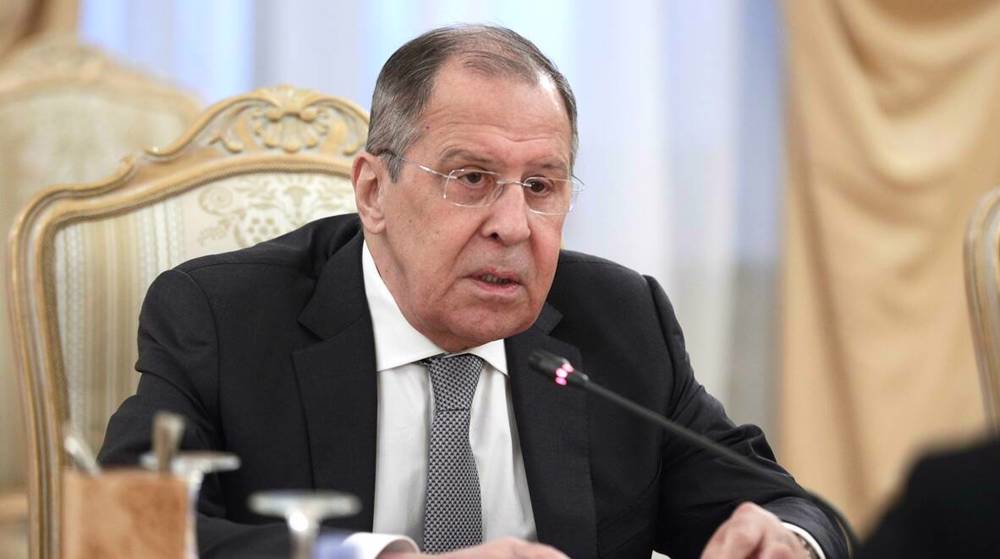
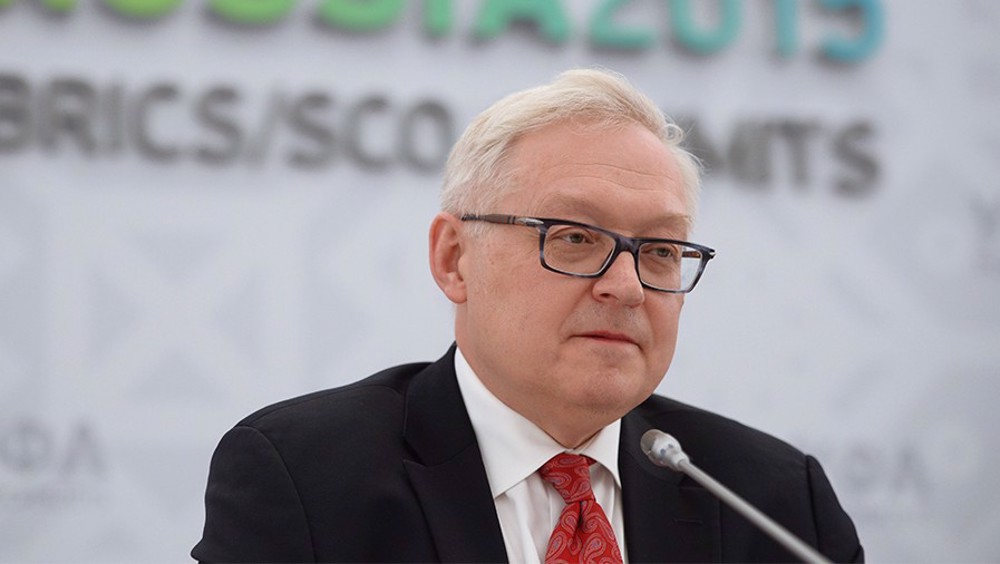


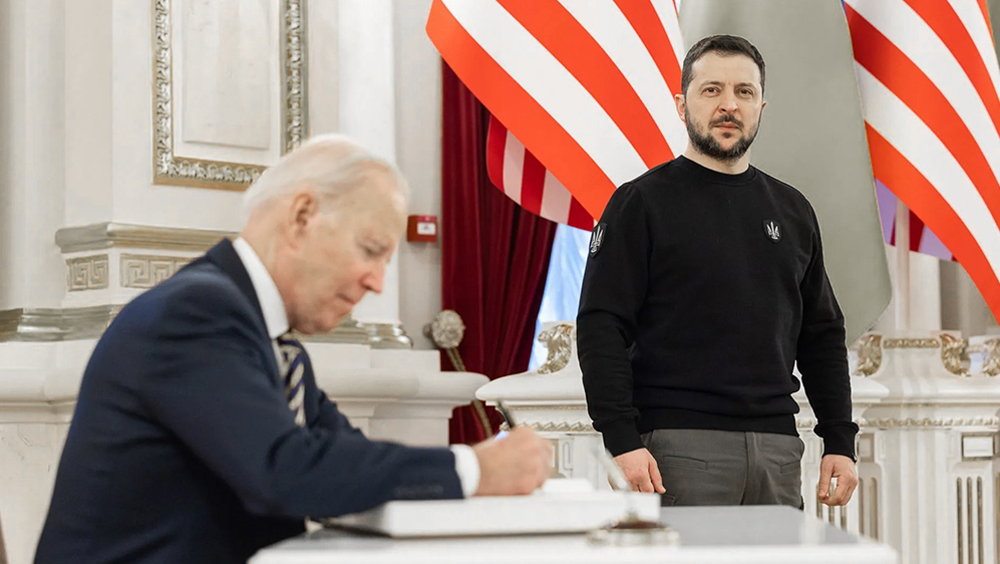




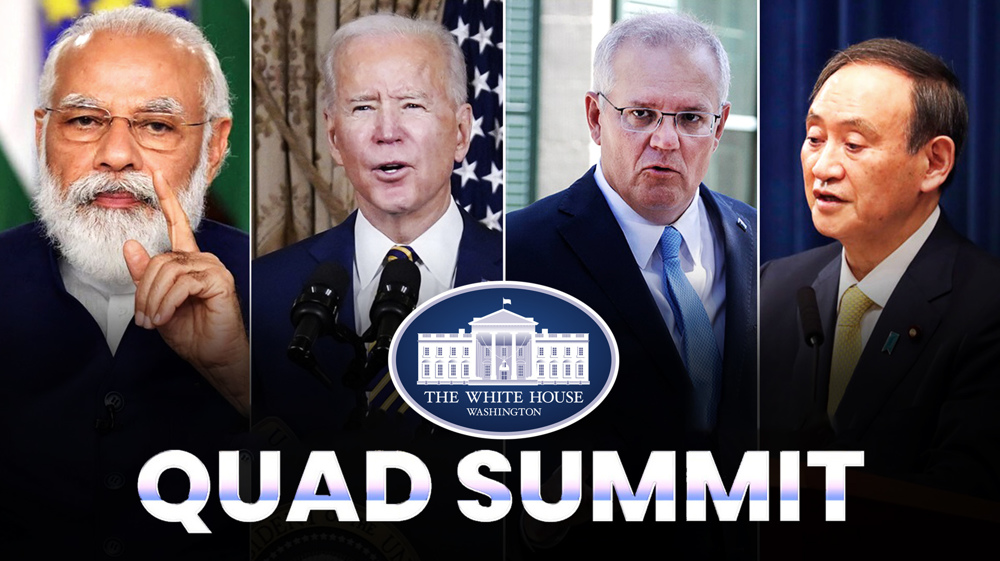
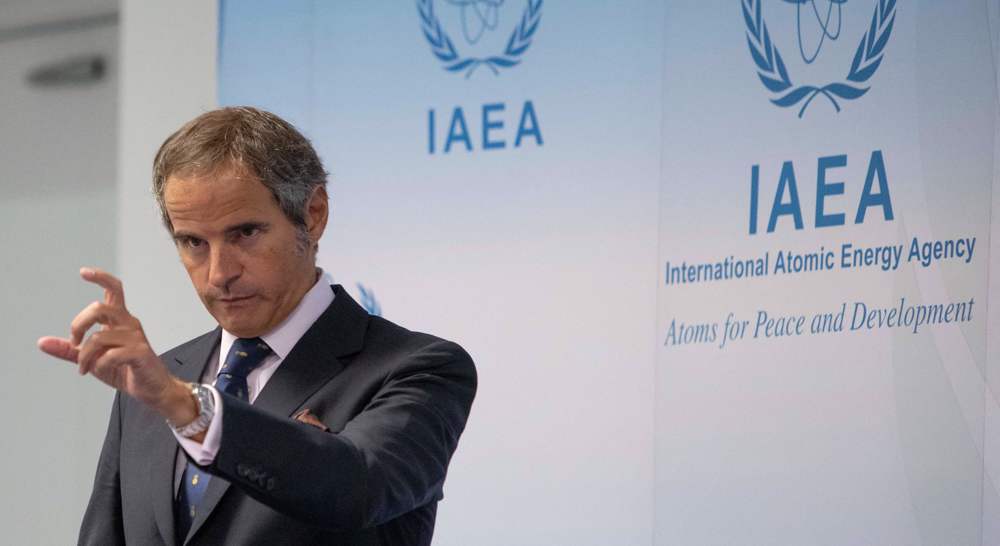
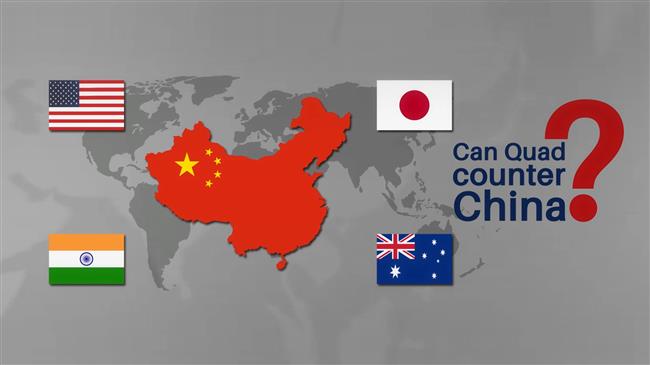

 This makes it easy to access the Press TV website
This makes it easy to access the Press TV website